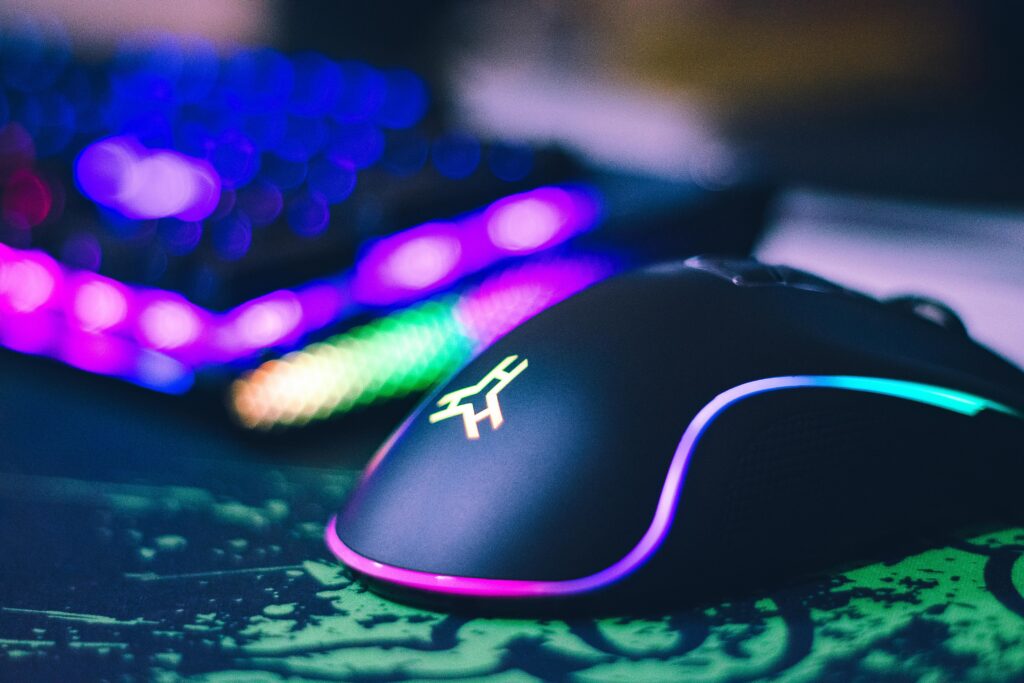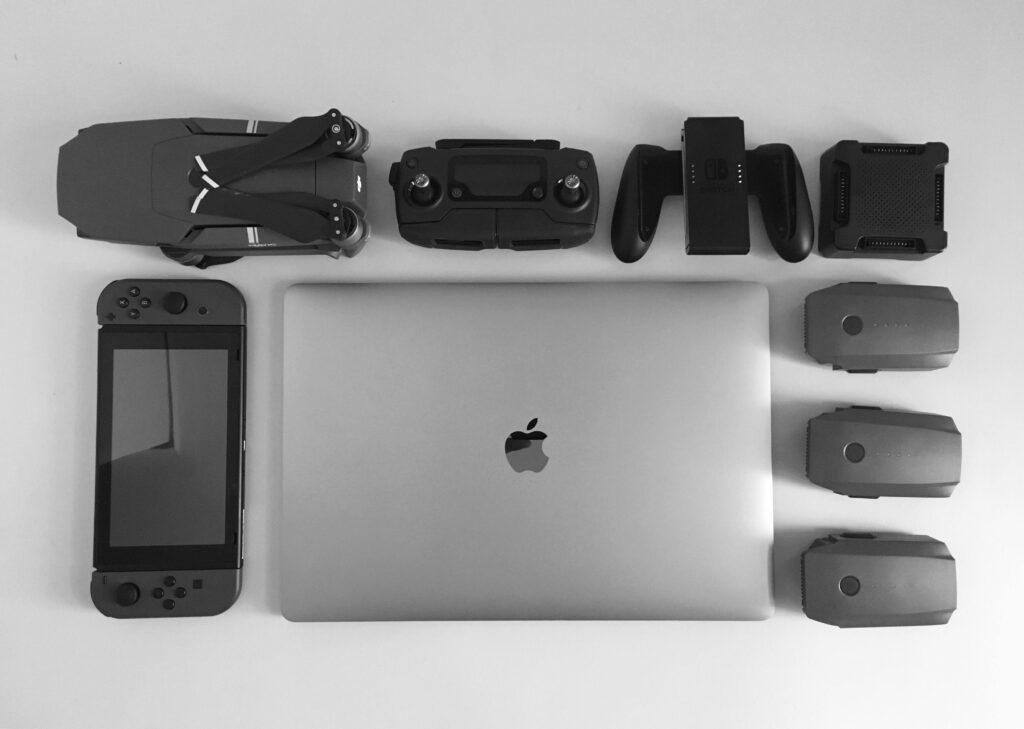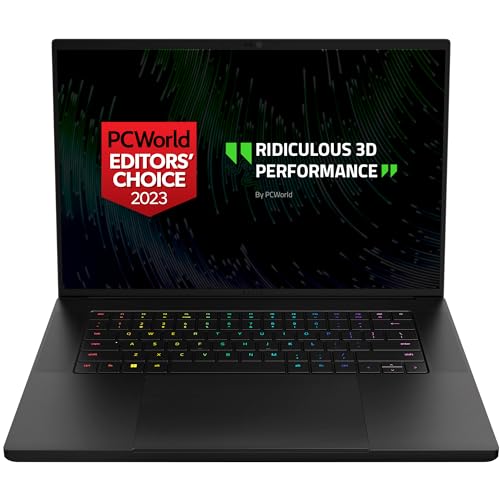Introduction to Gaming Devices

In the world of video gaming, the choice between gaming laptops and desktops remains a topic of dynamic debate among enthusiasts and casual players alike. Both devices bring unique advantages and disadvantages, leading to a divergent experience depending on individual preferences and requirements. The ongoing discussion often revolves around three key factors: performance, portability, and overall user experience.
Gaming laptops have surged in popularity due to their remarkable portability. They provide gamers with the ability to play their favorite titles from virtually any location, whether at home, on the move, or during travel. With advancements in technology, many gaming laptops are now equipped with powerful graphics cards and processors capable of delivering smooth gaming performance. This combination of features ensures that users can indulge in high-quality gaming without being tethered to a physical setup.
On the other hand, gaming desktops are often considered the gold standard for performance. They typically offer superior specifications due to their larger form factor, allowing for better cooling systems, more powerful hardware configurations, and easier upgrade options. This means that desktop gamers can enjoy enhanced graphical fidelity and smoother frame rates, providing an optimal gaming experience for those who prioritize performance above all else.
Ultimately, the decision between a gaming laptop and a desktop is influenced by individual needs and circumstances. For those seeking mobility and convenience, a gaming laptop may be the ideal choice, especially for students or professionals who travel frequently. Conversely, for gamers who prioritize high performance and customization options, a gaming desktop may offer a more satisfying solution. As this discussion unfolds, it provides valuable insights to guide potential buyers in making an informed decision based on their unique gaming requirements.
Performance Comparison
When evaluating gaming laptops versus desktops, performance is a critical consideration that can significantly impact gaming experiences. One of the key aspects to examine is processing power. Desktop computers typically house more potent CPUs with higher clock speeds and core counts than their laptop counterparts. This advantage allows desktops to handle demanding tasks efficiently, making them ideal for gaming enthusiasts who prioritize performance in resource-intensive titles.
Graphics capabilities are another fundamental differentiator between gaming laptops and desktops. Generally, desktops are equipped with dedicated graphics cards that offer superior performance compared to the mobile GPUs found in laptops. This translates to higher frame rates and improved visual quality in games. Furthermore, desktops have the capacity to support multiple graphics cards in SLI or CrossFire configurations, providing a significant edge in terms of graphical processing power. Conversely, while some gaming laptops boast high-performance graphics, they often operate at reduced clock speeds to manage heat and power consumption.

Thermal management is a crucial factor that affects overall performance. Desktops inherently allow for better cooling solutions due to their larger case sizes, which accommodate more robust cooling systems. Enhanced airflow and larger heatsinks help maintain optimal temperatures during extended gaming sessions, reducing the risk of thermal throttling. In contrast, gaming laptops must prioritize portability, leading to more compact cooling systems that can struggle under heavy loads. This limitation may result in decreased performance over time as the device heats up during prolonged usage.
Overall, when assessing the performance of gaming laptops and desktops, it is evident that desktops generally outperform laptops in critical areas such as processing power, graphics capabilities, and thermal management. Such differences make desktops typically preferable for gamers seeking high-fidelity gaming experiences without compromise.
Upgradeability and Customization
The upgradeability and customization of gaming laptops and desktops are critical factors to consider when making a purchasing decision. Generally, gaming desktops are favored for their superior upgrade potential. In a gaming desktop, individual components such as the graphics card, RAM, storage, and cooling systems can be easily accessed and replaced or upgraded according to the user’s needs. This flexibility allows gamers to tailor their systems for optimized performance and to keep pace with the latest gaming technologies.
For instance, when a new generation of graphics cards is released, a desktop user can simply purchase the latest model and install it, enhancing their gaming experience substantially. Furthermore, desktops often support a greater variety of parts due to their larger form factor and connectivity options, enabling custom builds that cater to specific gaming or productivity needs.
On the other hand, gaming laptops, while portable and compact, tend to have significant limitations when it comes to upgradeability. Many laptops come with soldered RAM, which cannot be replaced, and their graphics cards are frequently integrated into the motherboard, making upgrades either impossible or extremely challenging. Users may only have the option to enhance storage capacity, typically through an additional SSD or through an external hard drive. This limitation can lead to frustration as technology advances and system requirements increase.
Moreover, customization options for laptops often involve aesthetic changes, such as keyboard lighting, rather than changes to performance-enhancing hardware. While some gaming laptops offer user-accessible panels for quick upgrades, the extent of modification is still far inferior to what desktops routinely allow.
Ultimately, those seeking the best upgrade paths and personalization options for future gaming ventures should strongly consider investing in a gaming desktop. This option not only supports prolonged use through customizable updates but also aligns with the needs of gamers invested in performance and technology longevity.
Cost Considerations
When contemplating the purchase of a gaming device, one of the foremost aspects to evaluate is the cost. Both gaming laptops and desktops come with their own distinct price ranges and financial implications. Typically, gaming laptops offer a more portable solution, which tends to be reflected in their pricing. A competent gaming laptop usually starts around the $1,000 mark, while high-end models can easily exceed $2,000. The compact design and integration of components contribute to these elevated costs, making laptops a significant financial investment for gamers on the go.

Conversely, gaming desktops present a more varied pricing landscape. Entry-level systems can be acquired for approximately $500 to $800, yet dedicated gaming rigs with powerful graphics cards and advanced processors can reach $3,000 and beyond. This price diversity often offers a broader range for customization, allowing gamers to create a system that aligns more closely with their performance needs and budget constraints. Moreover, desktops permit cost-effective upgrades over time, enabling users to replace individual components, such as the graphics card or memory, as technology advancements emerge, which can optimize long-term financial savings.
Another critical aspect to consider is the lifespan of each device. Desktops generally have a longer lifespan due to the ease of upgrades and repairs. In contrast, gaming laptops, while convenient, often face limitations in terms of component upgrades, especially as they age. Over time, a desktop may represent better long-term value, especially for dedicated gamers who wish to keep up with the ever-evolving gaming landscape. Therefore, when assessing the cost implications of gaming laptops versus desktops, it’s essential to consider not only the initial price but also future upgrade capabilities and the system’s overall lifespan to make an informed decision.
Portability: The Case for Laptops
In the realm of gaming, one of the most significant factors influencing purchasing decisions is portability. Gaming laptops have carved out a niche for themselves by offering a level of convenience that desktop computers simply cannot match. For gamers who frequently travel or find themselves in need of a versatile gaming solution, a laptop can be an indispensable tool. Whether it’s participating in LAN parties, attending gaming tournaments, or simply gaming on the go, the advantages of a gaming laptop become evident.

Consider the scenario of a gamer who enjoys playing with friends. A gaming laptop enables them to easily transport their rig to a friend’s house for a weekend gaming marathon or engage in esports competitions at various venues. The lightweight design and compact form factor of gaming laptops allow users to grab their gear and go without the hassle of disassembling a desktop setup. This mobility can enhance the social experience of gaming, enabling players to connect, compete, and share in real-time, whether at home or away.
While desktops certainly can provide superior performance, they often lack the flexibility required by modern gamers. Transporting a desktop setup involves cumbersome components such as the case, monitor, and peripherals, which can be an arduous task. In contrast, gaming laptops integrate essential hardware into a single device, reducing the clutter and effort typically associated with desktop gaming setups.
For individuals who travel frequently, such as business professionals or students, gaming laptops offer an effective solution. They allow users to enjoy high-quality gaming experiences without compromising their portability needs. Ultimately, the rise of gaming laptops can be attributed to the unique blend of performance and portability, catering to a diverse range of gaming scenarios and lifestyles.
Space and Aesthetics: Desktops vs. Laptops
When selecting a gaming system, potential buyers often overlook the significant differences in spatial requirements and aesthetic appeal between gaming desktops and laptops. These factors can heavily influence purchasing decisions, as they directly relate to the user’s environment and personal preferences. Gaming desktops, typically larger and more powerful, demand dedicated space often requiring a sizable desk and room for peripherals. This necessity for ample spacing can be a deterrent for those with limited living space, such as students or individuals residing in small apartments. Additionally, desktops offer the advantage of easier upgrades and customizations, allowing users to personalize both the performance and appearance to reflect individual tastes.
On the other hand, gaming laptops, designed for portability, present a compelling option for gamers who prioritize mobility and flexibility. Their compact size supports easily fitting into various living spaces, making them ideal for on-the-go gaming or for those who enjoy playing from multiple locations. The sleek designs of modern gaming laptops add an extra layer of appeal, often showcasing RGB lighting and cutting-edge materials that resonate with many gamers’ aesthetics. This combination of performance and style can sway consumers who are concerned with both functionality and visual impact.
Ultimately, the choice between a gaming laptop and a desktop involves weighing the importance of spatial constraints against aesthetic preferences. For gamers situated in limited spaces or those who require portability, a gaming laptop may be the more suitable option. In contrast, individuals who relish the gaming experience in a dedicated setting might find that a gaming desktop complements their environment and fulfills their performance expectations more effectively. The decision hinges on understanding one’s lifestyle and visual appeal that each system can offer.
Five Powerful Gaming Devices to Consider
When deciding between gaming laptops and desktops, a selection of powerful devices can significantly impact your gaming experience. Here are five notable contenders that cater to various needs and preferences in the gaming community.
The Asus ROG Zephyrus G14 stands out as one of the leading gaming laptops in the market. With its AMD Ryzen 9 processor and NVIDIA GeForce RTX 3060 graphics card, it delivers impressive performance in a highly portable package. The device’s sleek design and superior battery life make it a great option for gamers who need portability without sacrificing power. Additionally, its customizable RGB lighting and high refresh rate display enhance a gamer’s visual experience.
- 【Upgraded】 Seal is opened for Hardware/Software upgrade only to enhance performance. 14.0″ OLED 2.8K (2880×1800) 120Hz D…
- 【Powerful Performance with Ryzen 9 8945HS Octa Core】 8th Gen Ryzen 9 8945HS 4.0GHz Processor (upto 5.2 GHz, 24MB Cache, …
- 【High Speed and Multitasking】 16GB OnBoard RAM; 180W Power Supply, 4-Cell 73 WHr Battery; Platinum White Color
Next, the Alienware M16 R2 is known for its distinctive design and robust performance. Featuring Intel’s latest processors and a dedicated RTX 4070 GPU, this gaming laptop offers an immersive gaming environment with a high refresh rate and stunning graphics. Its advanced cooling technology ensures optimal performance during extensive gaming sessions. This device is best suited for serious gamers who prioritize top-tier performance and aesthetic appeal.
- COMMANDING POWER & PRESENCE: Outplay your rivals and show them who’s boss with an 18-inch gaming laptop featuring 14th G…
- UNCOMPROMISED PERFORMANCE: Our exclusive thermal interface material*, now located on the CPU and GPU, dissipates heat fo…
- STUN RIVALS, STAY IN AWE: Never overlook your competition with our crystal-clear, 18-inch, 16:10 display available with …
The Razer Blade 16 combines performance and elegance, making it a favorite among enthusiasts. With a powerful Intel i7 processor and options for RTX 4090 graphics, it’s engineered for high-performance gaming. The Razer Chroma RGB lighting adds personalization, while its high-resolution display promises an immersive experience, appealing to gamers who appreciate visual fidelity and style.
- NVIDIA GEFORCE RTX 4090 GRAPHICS: Packed for pure performance with 1.50 gPD (Graphics Power Density) and delivers up to …
- 13TH GEN INTEL CORE I9 13950HX PROCESSOR: From full-blown AAA gaming to full-on content creation, run resource-intensive…
- NEXT GEN DUAL-MODE MINI LED DISPLAY: Switch between ultra-sharp 4K for creative work and ultra-fast refresh rates for si…
For desktop users, the MSI MEG Trident X2 offers a compact yet powerful gaming experience. Equipped with Intel’s latest processors and customizable GPU options, it delivers exceptional performance suitable for AAA titles. Its small footprint makes it suitable for spaces where desk space is a concern while maintaining a striking aesthetic.
- Graphics Card: NVIDIA GeForce RTX 4070 Ti VENTUS 3X 12GB GDDR6
- Processor: 13th Gen Intel Raptor Lake Core i7-13700KF 16 Cores (3.4GHz-5.4GHz, 30MB Intel Smart Cache, 125W)
- RAM: 32GB (2x 16GB) DDR5 4800MHz | Hard Drive: 1TB M.2 NVMe SSD + 1TB 3.5″ 7200 RPM HDD
Lastly, the Corsair Vengeance i7400 is a powerhouse built for gamers seeking customization and performance. This desktop features high-end components and extensive upgrade options, catering to those who wish to enhance their gaming rig over time. With its focus on cooling and stability, it suits gamers who engage in intense gaming and streaming sessions.
- Game with a VENGEANCE: Built with a full range of award-winning CORSAIR components and driven by CORSAIR iCUE software f…
- Liquid-Cooled 13th Gen Intel Core CPU: The latest in dynamic CPU architecture so you can game and multitask without comp…
- NVIDIA GeForce RTX 40-Series Graphics: Experience lifelike virtual worlds with ray tracing and ultra-high FPS gaming wit…
User Experience: Community Insights
When deciding between gaming laptops and desktops, personal experiences and community feedback can offer invaluable insights. Many gamers express a preference for gaming desktops due to their enhanced performance capabilities. For instance, several users highlight that desktops generally provide superior graphics performance and faster processors, which can significantly enhance the gaming experience. One commenter mentioned that after upgrading to a desktop, they noticed a remarkable improvement in frame rates and overall game clarity, which is particularly important for competitive gaming.
On the other hand, the portability of gaming laptops attracts a diverse range of gamers. Many players appreciate the flexibility that laptops provide, allowing them to easily transport their gaming setup to friends’ houses or even to gaming events. A user shared an experience where they could join impromptu gaming sessions with friends thanks to their laptop, noting that convenience often trumps slight performance disadvantages in non-competitive gaming situations. They found it particularly useful for engaging in gaming during travel, contrasting sharply with the limitations of a desktop.
Moreover, the community underscores the importance of budget considerations. Several gamers reported that gaming laptops can be more accessible for those starting out or for individuals who have limited space. Personal anecdotes indicate that entry-level gaming laptops have performed well for many, particularly for those who play less demanding titles. Conversely, seasoned gamers have often recommended investing in building a custom desktop for optimal long-term performance. This sentiment reflects a consensus in the community that a thoughtfully assembled desktop setup may yield better results over time, especially for demanding gaming experiences.
Ultimately, the choice between gaming laptops and desktops often boils down to individual preferences, gaming habits, and lifestyle needs. The insights from the gaming community highlight that both options have unique benefits that cater to diverse needs.

Conclusion: Making the Right Choice
In the debate between gaming laptops and desktops, it is essential to understand the unique benefits each option offers. As highlighted throughout this discussion, gaming laptops provide the advantage of portability, allowing users to enjoy gaming experiences in various environments. This flexibility appeals to students, travelers, and individuals who may not have a permanent gaming setup. On the other hand, gaming desktops typically offer superior performance due to their larger components and superior cooling systems, which can be vital for running demanding games and applications.
When assessing the right choice for your gaming needs, it is crucial to consider your lifestyle. If you prioritize mobility and frequently find yourself gaming on the go, a gaming laptop may be more suitable for you. Conversely, if you enjoy building and customizing your gaming rig or favor playing high-end games at maximum settings, a desktop could meet those requirements more effectively. Additionally, desktops generally provide better upgrade potential, which is a key factor for gamers looking to keep up with technological advancements over time.
Budget constraints also play a significant role in your decision. While you may find that higher-end gaming laptops can be more expensive, desktops often provide more performance for the price. It is advisable to analyze both options within your financial limits and identify models that will deliver the gaming experience you desire without exceeding your budget.
Ultimately, the choice between gaming laptops and desktops should be based on a careful evaluation of your gaming preferences, lifestyle, and budgetary considerations. By weighing the pros and cons of each option as discussed, you can make an informed decision that aligns with your personal gaming ambitions.





